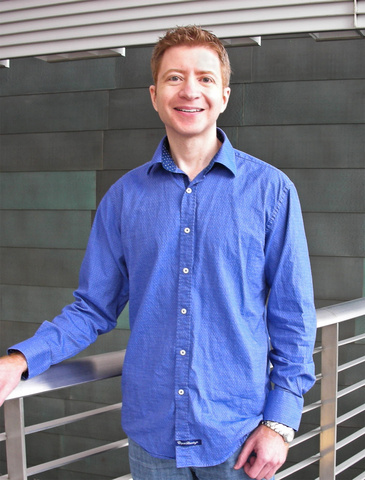 What is your hometown?
What is your hometown?

Davenport, IA
How/when did you become interested in science and/or medicine?
During my senior year of high school, I was lucky enough to compete in the International Science and Engineering Fair. This experience inspired me to continue research as an undergraduate at Iowa State. I enjoy practicing medicine since I get to directly see how scientific research helps people.
When did you join the University of Iowa faculty?
2012. I came to the University of Iowa in 2000, and did my M.D., Ph.D., internship, and radiation oncology residency here.
How or why did you choose to join the faculty at the University of Iowa?
I have a great group of coworkers, and many resources available to me in the radiation therapy department and Holden Comprehensive Cancer Center. I'm a native Iowan, and I'm proud to work for our state hospital. It's my opportunity to give back.
Is there a teacher or mentor who helped shape your career?
I spent a summer doing computational modeling of carbohydrate molecules with Dr. Peter Reilly, my undergraduate chemical engineering adviser at Iowa State. I continued to collaborate with him even after I started medical school. He encouraged me to write up my research, and I had my first few publications with him. Dr. Adrian Elcock, my Ph.D. adviser in biochemistry at the University of Iowa, grounded me in the scientific thought process.
How do you see your faculty role impacting medicine and/or science?
I represent the University of Iowa Hospitals & Clinics team and provide university-level radiation therapy treatments in the southeastern Iowa community. My practice in Burlington has the same radiation machine as those at University of Iowa Hospitals & Clinics, and I'm able to offer most of the same treatments. Since a course of radiation therapy may comprise up to two months of daily treatments, my patients can have their cancers treated close to home, with less disruption of their lives.
What is the biggest change you've experienced in your field since you were a student?
Being able to instantly pull up patients' radiology imaging on the computer! Twenty years ago, CT and MRI images were printed on film. These physical copies were checked out from the radiology film room, so only one person at a time had access to them. The films you needed might be checked out to another office, in the operating room, misfiled, or mailed out of town. Having instant access to images taken at University of Iowa Hospitals & Clinics from my practice in Burlington is amazing, and no one thinks twice about it!
What one piece of advice would you give to today's students?
Most things worth doing aren't easy, otherwise everyone would be doing them. You're not going to love every class or rotation, but keep your ultimate goal in mind, and your motivations. Your professors and staff are on your team, and we really want you to succeed.
In what ways are you engaged in professional activities outside the University (i.e. population based research, mentoring high school students, sharing your leadership/ expertise with organizations or causes, speaking engagement off campus, etc.)?
I've given talks to the public and healthcare providers in Burlington on prostate cancer, breast cancer, lung cancer radiosurgery, etc. Last year, I was the president of ISTRO, Iowa's radiation oncology society. I'm currently serving on the rural task force for ASTRO, the national radiation oncology professional society.
What are some of your outside (personal) interests?
Church, computer graphics modeling, weightlifting, gardening, baking, and reading (Brandon Sanderson, Terry Pratchett, Robert Heinlein, Dan Simmons, Dorothy Sayers, and Agatha Christie are some of my favorite authors)